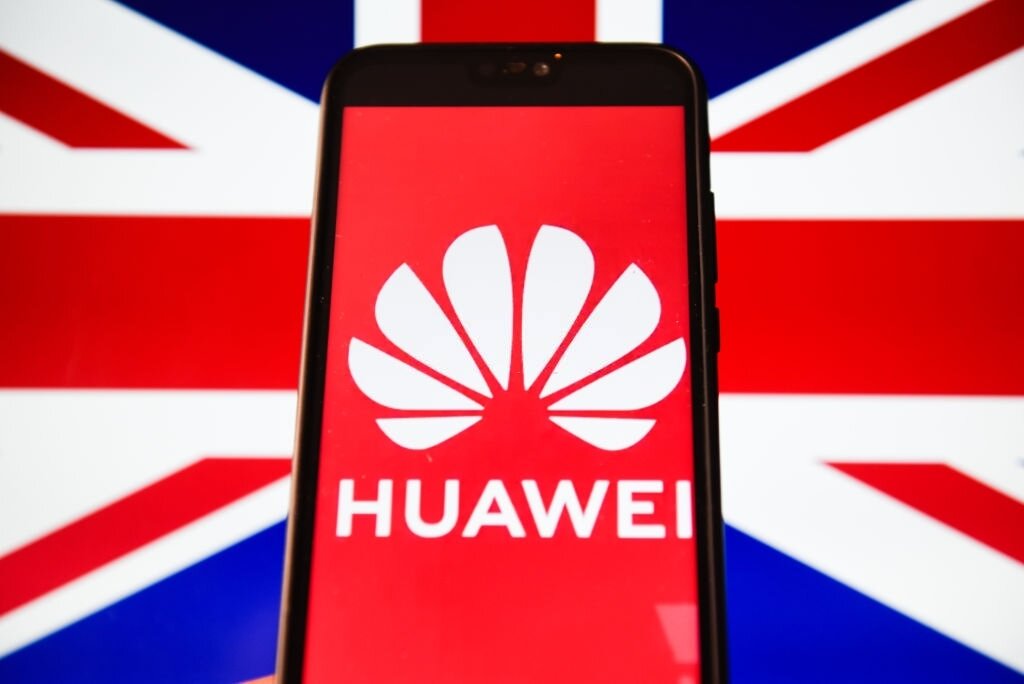The Commons: Why did Westminster Reverse Course On Huawei?
Omar Marques/SOPA Images/LightRocket
Last Tuesday, Westminster announced that the Chinese telecom giant Huawei would no longer be involved in Britain’s 5G project, a 180 from their position in January. The decision is pivotal as to what role Britain will play in a fragile arrangement of power between itself, China, and the United States.
In what is seen in the press as Westminster yielding to pressure from the United States, Parliament has made sure to emphasize national security concerns as their motivation. The UK has stated that the new American sanctions toward China have compromised the already “high-risk” operation with Huawei. In Oliver Dowden’s statement on telecoms to the House of Commons, the current Culture Secretary stated that the actions of the US government have created “uncertainty [...] around Huawei’s supply chain,” and that the “the UK can no longer be confident it will be able to guarantee the security of future Huawei 5G equipment.” Publicly, Westminster has taken the stance that this is but a matter of national security, though behind closed doors, their motivations may be different.
For many, it is clear that geopolitics have played a role. Back in January, Boris Johnson’s decision to allow Huawei access into the UK’s 5G network angered lawmakers in the US. The formal response from Capitol Hill was that the UK should “carefully assess the long-term national security and economic impacts of allowing untrusted vendors access to important 5G network infrastructure,” but the wider response was much clearer as to the American’s concerns. One Republican senator went as far as to state that the “special relationship is less special now that the U.K. has embraced the surveillance state commies at Huawei.” For much of the US, Huawei is seen as just another branch of the Chinese Communist Party’s global influence. One senior White House official went as far as to liken it to “the Mafia.” Consequently, the US has aimed to deter its allies from engaging with the Chinese telecom leviathan by leveraging its position in the Five Eyes “intelligence sharing and military collaboration.” Donald Trump put it simply in a recent press conference: “I talked many countries out of using [Huawei]. If they want to do business with us, they can’t use it.”
In the eyes of the American government, Johnson’s attitude toward Huawei threatened the sanctity of the nations’ alliance, specifically in the field of intelligence technology. That being so, the gravity of the US’s concern about Huawei makes Westminster's reversal even more of a victory for the Trump administration. When asked to choose sides, Britain remained with the US, fanning the flames of growing tension between the UK and China.
When asked if the UK’s all-out ban of Huawei would cause issues for a post-Brexit trade deal between the nations, one Chinese Foreign Ministry spokesperson stated that the move has “eroded mutual trust underpinning China-UK cooperation,” making the nations’ future relationship all the more uncertain. Furthermore, when asked to comment on reports about President Trump “talk[ing] many countries out of using Huawei, saying if they want to do business with the US, they cannot use” the telecom company, the Foreign Ministry responded sharply:
“This is further proof that decisions to ban Huawei are not about national security, but political manipulation. It also shows the world that it is not China, but the US, that has been intimidating and threatening others and sowing discord all across the world.”
On the brink of what is set to be a severe recession in the UK, Britain’s decision has made waves. On one side, the UK has chosen to maintain its relationship with the US, its longtime ally and one of its largest trading partners. Maintaining a diplomatic and economic relationship between the two nations is vital to Westminster. However, in following suit as to their ban of Huawei, the UK threatens their relationship with China, one of the fastest growing economies in the world and a country set to dominate global politics in the coming years.
In conversation with Politico, director of the British Foreign Policy Institute, Sophia Gaston, made clear that “The ‘Golden Era’ of U.K.-China relations is now firmly over.” For many, Parliament's U-turn on Huawei is a symptom of Britain’s changing relationship with the nation. With President Xi Jingping and his government facing allegations of “espionage by Chinese firms, human rights abuses and protectionist trade practices,” Westminster’s relationship with the nation is under scrutiny. Following their assertive reaction to the Hong Kong Security Law last month, Parliament is seen to be taking a stronger position against China, following in the footsteps of their American neighbors and adding fuel to a fiery tripartite tension between the US, the UK, and China.

